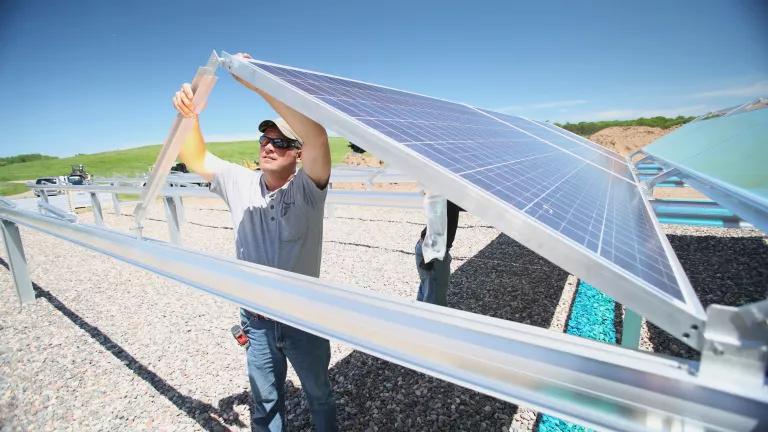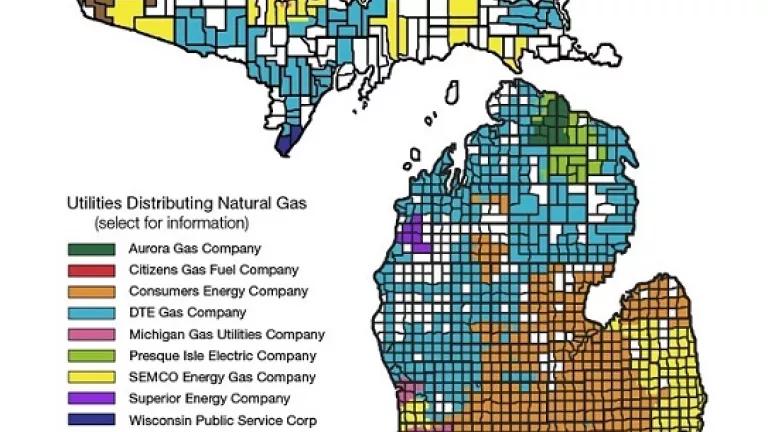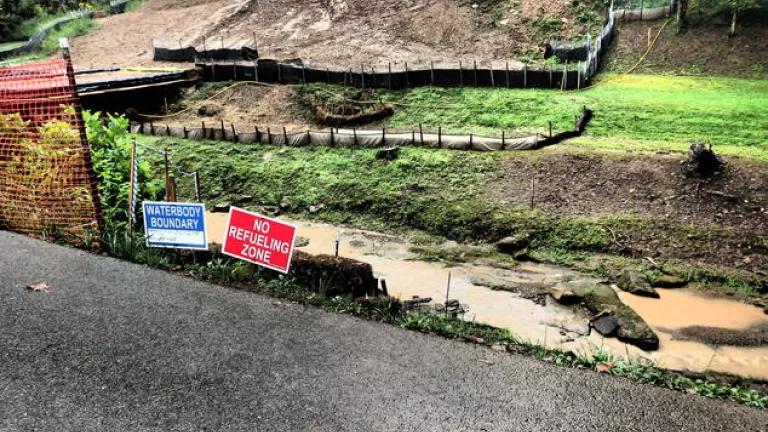Time to End Consumers Energy’s Use of Coal
Consumers Energy wants to speed up the retirement of its remaining coal plant—the J.H. Campbell Power Plant, located just outside of Grand Rapids—as part of its plan to become carbon-neutral by 2040.
Consumers Energy wants to speed up the retirement of its remaining coal plant, the J.H. Campbell Power Plant, as part of its plan to become carbon-neutral by 2040. There is no safe path for burning coal to create electricity. Ending coal-fired power, once and for all, would mean significant benefits for Michiganders, including slashing health-harming air pollution and millions of tons of greenhouse gases (GHGs) that fuel the climate crisis. It’s therefore imperative that the utility proceed with its plan to retire the Campbell plant earlier than scheduled.
The plant, located in West Olive just outside of Grand Rapids, consists of three coal-fired steam turbine units. The utility wants to retire Units 1 and 2 eight years early—from 2031 to 2023—and move up the closure of Unit 3 to 2025 instead of 2039, or 14 years early. To completely shut down the plant within three years, Consumers Energy needs approval from its regulator, the Michigan Public Service Commission (MPSC).
Consumers Energy, Michigan’s second-largest utility, included the retirement request in its long-range energy plan, the Integrated Resource Plan (IRP), which the utility is required by law to outline its path for meeting the power needs of its 1.8 million customers. The last step in the approval process is for the three commissioners who oversee the MPSC to issue an official order next month approving the accelerated retirement of the plant. Doing so will mean the commissioners believe Consumers Energy can find paths other than coal-fired plants to provide electricity service to its customers.
Retiring the Campbell Plant by 2025 will be a cheaper and safer path for Michiganders. If the plant remains operational beyond 2025, the utility will have to spend millions of dollars to keep the facility running and to comply with environmental protections, such as wastewater regulations from power plants. Those costs will be passed on to customers in the form of higher bills. Further, there are more cost-effective options to keeping the Campbell plant open, like replacing its capacity with solar, wind, energy efficiency, battery storage, and capacity purchases. These alternatives also do not contribute to our greenhouse gas (GHG) or air pollutant emissions.
Healthy and Public Safety at Stake
During the contested case portion of the IRP, an analysis of the Campbell plant’s impacts on public health showed that the plant’s fine particulate matter (PM 2.5) emissions contributes to 36-82 premature deaths annually, as well as $389 million to $879 million in health care costs related to non-fatal respiratory and cardiovascular illnesses. The research institute found that Unit 3 alone was responsible for most of the emissions and related public health effects and costs, including between 12 to 27 premature deaths annually, and between $130 million and $293 million of the public health care costs related to PM 2.5 emissions.
From purely a public health standpoint, this plant must be shut down. Unfortunately, the Campbell plant is also a climate disaster.
Coal-Fired Power Fuels the Climate Crisis
The climate crisis we find ourselves in today requires that we do everything possible to reduce carbon emissions. Failure to approve the early retirement of the Campbell Plant would run counter to that. PSE Energy found the Campbell plant’s carbon dioxide pollution (CO2) was the highest of any Consumers Energy plants, emitting 8.2 megatons of CO2—equivalent to the GHG pollution from 1.8 million Michigan passenger vehicles—and 60 percent of those emissions come from Unit 3. In comparison, the second most GHG-intensive plant in the Consumers Energy portfolio—the Midland Cogeneration Venture as plant—emits 4 megatons of GHGs annually, less than half the pollution burden of Campbell
Administrative Law Judge's Recommendation
The administrative law judge (ALJ) overseeing the Consumers Energy IRP issued a recommended ruling on the utility's request to retire the Campbell Plant by 2025. The ALJ recommended that the Commission direct Consumers Energy to perform additional analysis to determine whether the proposed 2025 retirement of Campbell Unit 3 is the most cost-effective option for the company. As a result, Consumers Energy has publicly expressed its displeasure with the ALJ's recommendation and has indicated that it could walk away from the case. With this looming threat, it is even more important for people to express the need for the Campbell Plant to retire in 2025.
Urge the MPSC to Approve the Campbell Plant’s Retirement
You can support efforts to ensure the Campbell plant is fully retired by 2025, by contacting the MPSC in the following ways:
- Email: mpscedockets@michigan.gov and include the case number—U-21090—in the subject line.
- Letter: Include the case number U-21090 and mail to:
Michigan Public Service Commission
Executive Secretary
7109 W. Saginaw Highway
Lansing, Michigan 48917
- Phone: Call 517-284-8100 and give the case number U-21090
Our health and climate are at risk the Campbell plant stays online after 2025. If you agree, reach out to the commission to show your support by April 25, 2022.


